The Kinds Of Girls Who Read Lena Dunham’s ‘Not That Kind of Girl’
We asked seven young women for their opinions on Dunham's new memoir.
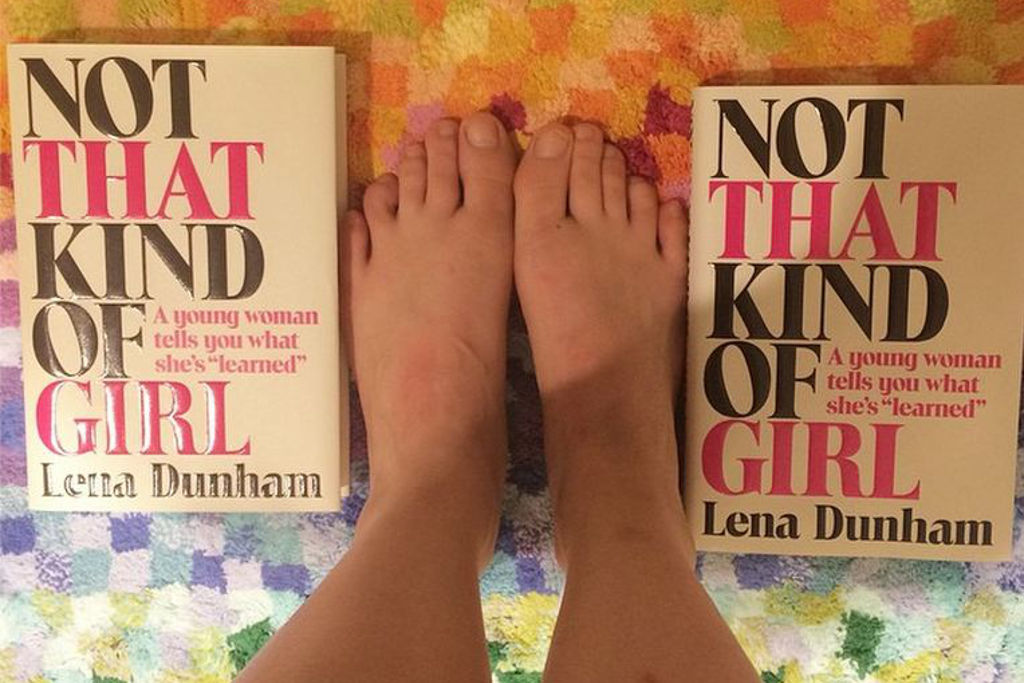
Lena Dunham’s memoir Not That Kind of Girl was released this month, and has inspired all manner of frothing from media-types, fans and detractors alike. The book cover blurbs were impressive enough (David Sedaris, George Saunders and Judy Blume provided quotes), critics pumped out positive reviews, and others took time out to slam Dunham for not paying warm-up acts on her book tour – which also features lit-girl luminaries like Zadie Smith and Miranda July. (It took only a matter of hours for the writer to apologise, and agree to compensate the opening acts she had planned to showcase.)
Rather than handing the hardback over to someone out of her demographic (or God forbid, a dude), Junkee instead polled seven ladies in their 20s. All of whom read the book soon after its release date, and all of whom provided unvarnished opinions. Surprisingly for such a confessional memoir, the word ‘vagina’ was mentioned only once by a reviewer, and privilege was often invoked. Most agreed that it was enjoyable in its sharing, and its style.
So what kind of girl read Not That Kind of Girl? Meet our vox poppers:
–
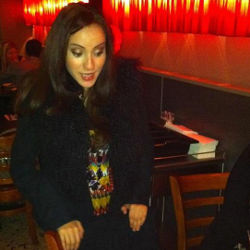 Aicha Marhfour
Aicha Marhfour
Age: 23
Occupation: Freelance journalist
I don’t turn to Lena Dunham as a role model for the Big Issues; some of her views don’t necessarily chime with mine, and that can temper my enjoyment. She’s a Problematic Fave, and I felt trepidation when I first got my hands on Not That Kind of Girl.
Her essays for the New Yorker are page-turners, imbued with a sweet self-involvement. But the book proposal did have some questionable parts, with an excerpt — which didn’t make it into the memoir — that dabbled in casual racism. Feeling the disapproving school-marm in me, I settled in and found myself reading long into the night.
I zoomed through it, half-angry that she had SO many things together (great parents, a fully-formed sense of self, awesome friends). But my take-away from it was more encouraging than envious — while Lena Dunham doesn’t claim to have all the answers, she gives us something more tangible for our own lives: her confidence.
And it may be contagious. We may not all be the offspring of talented artists, but as women, our stories are worth telling and savouring. And while we might sometimes waver, stuck up the career ladder, or mired in our relationships, we have voices which are valuable and which are needed. Particularly diverse ones, which were noticeably absent from most of this book.
As a friend said to me recently: ‘Don’t hold back, because the world won’t hold back for you.”
Lena Dunham certainly doesn’t hold back in Not That Kind of Girl, and neither should we.
Oh, and the Girls episode she spent in a bikini is everything.
–
 Fleur Mitchell
Fleur Mitchell
Age: 29
Occupation: Researcher on ABC TV’s The Book Club
To be honest I’m not a massive fan of Girls, but I like Lena and her overall vibe and was very excited to read the book. I devoured it over a weekend and enjoyed it a lot. It’s everything you would expect of Dunham, LOTS of vagina talk and dining in the bath tub, and So. Much. Anxiety.
It’s funny and brutally honest; the rawness of some chapters really surprised me, and she manages to avoid the cheese factor throughout. She ploughs through pretty much everything any woman struggles with at some stage/ constantly: body image, relationships, sex, loneliness, friendships, career, identity, anxiety, all in her own unique voice. I found myself cringing, chuckling and most importantly relating to so much in this book.
I have a bit of a problem with the “28-year-old writing a memoir” thing that seems to be the go these days, but its Lena’s ability to reflect on her experiences and get straight to the heart of things that makes it work. Like all of us, she’s just trying to figure stuff out, and I admire her honesty; Lena really lets her freak flag fly, and as a reader that’s always refreshing. Just like Tavi Gevinson’s Rookie, I wish this was around when I was a teenager. If you have any teenage girls in your life, buy this for them!
–
Nathania Gilson
Age: 23
Occupation: Freelance writer
Not That Kind of Girl is extremely entertaining in audiobook form. There’s original theme music, Lena puts on voices for various people (highlights include her multiple jerk exes, who all sound exactly the same), and it is ridiculously quotable.
Throughout the book, she calls herself out on attention-seeking behavior, privilege, her unreliable narration and having poor judgement. I think a true test of good memoir is how much of it can be used as a litmus test for our own empathy: how much of what she has to say can we appreciate if the surface details don’t necessarily match up to our own lives?
This memoir—and what I’ve “learned” from it—helps prove the value of pursuing things that makes us vulnerable to falling short. Instead of trying too hard to be validated as the girl everyone can relate to, Lena has achieved something more powerful: demonstrating what can happen when we put ourselves in charge of shaping our own identity.
–
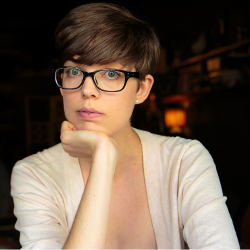 Kaitlyn Plyley
Kaitlyn Plyley
Age: 28
Occupation: Artist/Writer
Just finished Lena Dunham’s Not That Kind Of Girl and all I want to do is lay in the sunshine somewhere, listen to Taylor Swift, and dream. Maybe weep a little.
Book-Lena is me and my best friends and those housemates who annoyed me and that weird little girl I defended to other summer camp counselors. (The one who called me ‘Catalina’ and smashed up her guitar on the last day of camp.) Self-involved and destructive and aware of it and not sure how to change. We’re both 1986 kids, so I charted my life against Lena’s: computers suddenly showing up in Year 5, Runaway Bunny, getting the internet at home, on-and-off relationships, the advent of everyone talking about Girls. Except she was the one making Girls.
Book-Lena is an extreme version of me: messier, on more pills, more successful and with a shitload more money. Her over-sharing (yep, telling us the name of the first boy you gave a blow-job is over-sharing) gives me permission to be confused and not-together, to talk about those secret, horrific experiences. And she’s funny. Really funny. A funny, messed-up girl made it. I salute her.
–
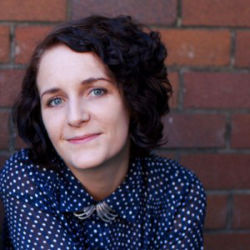 Steph Harmon
Steph Harmon
Age: 29
Occupation: Editor
Much of the criticism that’s been levelled at this book has been mirrored by complaints made about Girls: it’s over-sharing; it’s not representative of wider experience; the characters are self-indulgent narcissists.
I’m going to dismiss the “over-sharing” complaint from the get-go, because as Dunham herself said in a recent interview with Terry Gross, that’s not an objection that ever gets leveled at men — has anyone ever called Louis C.K. out for being an over-sharer? That it’s not representative is another issue. Dunham hopes her book will appeal to the everygirl — “I’m already predicting my future shame at thinking I had anything to offer you,” she says in the introduction, with typically deprecating self-awareness — but at the end of the day, she’s still the Very Special, Very Talented, Very Privileged Lena Dunham, who was raised by two successful artists in Manhattan, and whose acknowledgements read like a who’s who of hip intelligentsia: David Remnick, Mike Birbiglia, Miranda July, Judd Apatow, B.J. Novak, Roberta Smith, Jerry Saltz, David Sedaris, Zadie Smith, Ariel Levy — and, of course, “Taylor and all her songs”.
But: we bought these essays because of her network, fame and achievements, not despite them — and she writes her experiences very well. Not That Kind Of Girl reads like a true-to-life version of Caitlin Moran’s almost-true-to-life How To Build A Girl (in fact, in a bizarre parallel, both open with an anecdote about their teenage protagonist masturbating while sharing a bed with a sleeping younger sibling). One of my favourite essays was the angriest one, in which she deals with the patronising, sexist expectations of the men she’s encountered through her career: ‘I Didn’t Fuck Them, But They Yelled At Me’. And while Dunham’s life doesn’t represent all young women everywhere, her inner world is relatable for many: crippling anxiety, endometriosis, eating disorders, and an essay in which Dunham publicly deals with her rape in college, for the first time.
I love how much fun she has with format: one essay is presented as a food diary, another as a heavily footnoted email to a lover, and there are a few lists in there, too. (’15 Things I’ve Learned From My Mother’ contained one snippet I’ve since quoted at anyone who’ll listen: “If someone doesn’t answer your email within six hours, it means they hate you”.) It’s fun to read the anecdotes and guess at who inspired which character — I spotted two Rays, three Adams, and about twelve variants on Jessa — but what I got the most out of the book was the love letter within it: dappled throughout the various essays come small vignettes that honour the stability and joy her current relationship, with Fun.’s Jack Antonoff, has brought into her life. You don’t need the love and support of another person to land on your own feet, but it certainly doesn’t hurt.
–
 Liz Gourlay
Liz Gourlay
Age: 26
Occupation: Social worker
Lena Dunham’s new book is enjoyable enough — the perfect book for a Melbourne to Surfers Paradise plane ride, I’d say – but I didn’t learn anything. As a person with a full-time job that is essentially sorting out the lives of the most disadvantaged, I thought the book was a little too self-indulgent for me to take seriously. Perhaps it’s empowering for women like me, who are privileged in every possible sense of the word. But for anyone else, it’s definitely too far removed from ‘normal’ to relate to on any scale.
The first section of the book, ‘Love and Sex’, reminded me of Gossip Girl or the early seasons of Skins, only more entertaining, with less glamour, and more insight. It certainly didn’t model the lives of any of the people I know.
The next section, ‘Body’, downright irritated me, because I think it’s unhelpful — some of the details could be triggering for anyone with an eating disorder. At the end of it all, Lena still couldn’t acknowledge how unhealthy her diet, drug use and attitude were.
Still, I loved Lena’s hilarious descriptive writing style, and it was fun to read over a weekend. Well done to Lena for saying what she wants to say, and believing in herself. Even if she herself says in the book that she’s not brave, I still think she should be commended for her efforts.
–
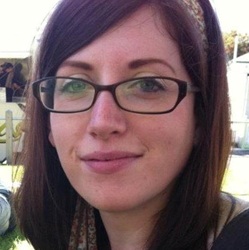 Tara Cartland
Tara Cartland
Age: 27
Occupation: Writer
I’m in bed, wondering if I’m too anxious to be in a relationship. When I don’t get a reply to a text message, I send it again. I read Lena Dunham’s book with my phone in my lap.
I expect it to be a balm. It’s not.
The ground Dunham covers in Not That Kind of Girl will be familiar to any viewers of Girls – stories of white upper-middle class privilege, artistic struggle, and something that comes very close to true love.
Unlike her character in Girls, however, Dunham has achieved a remarkable amount in a short time. Threaded through this book is her certainty about her unique creative destiny, and it’s both admirable and somewhat alienating.
Lena Dunham is not the everywoman that her supporters and detractors have both claimed. But she’s an exceptional writer, evocative and efficient, and Not That Kind of Girl — while not the commiseration I expected — is compelling, readable, and thoroughly entertaining.
–
Not That Kind Of Girl is out now through Harper Collins.
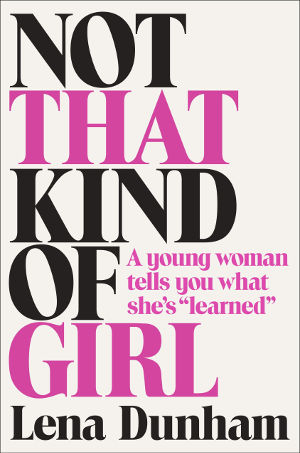
–
Article compiled by Aicha Marhfour; image from Lena Dunham on Instagram.





